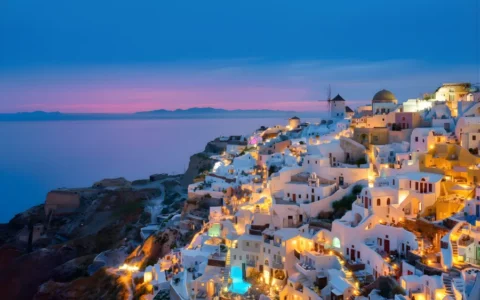Tax considerations play a significant role in the lives of wealthy individuals, often dictating their choice of residence. High-net-worth individuals (HNWIs) tend to gravitate toward countries that offer favorable tax regimes, moving away from regions with high tax burdens. In 2023, the tax wedge in OECD countries reached nearly 34.8%, prompting a noticeable migration of affluent individuals to countries with lower tax rates. This movement is largely driven by global tax reforms targeting the super-rich.
For instance, Brazilian President Luiz Inacio Lula da Silva, during a G20 finance ministers’ meeting, proposed a global tax on billionaires, advocating a minimum tax rate of 2% on their wealth. This initiative, backed by French economist Gabriel Zucman, could potentially generate over $200 billion annually from just 3,000 billionaires. Such tax initiatives reflect a significant shift in global tax policy narratives over recent years, with countries like Switzerland considering substantial inheritance taxes on wealth exceeding $59 million—a proposal set to be voted on under the nation’s direct democracy system.
This climate of increasing tax burdens is driving the affluent to relocate to tax havens—countries with low or no income taxes. According to New World Wealth, in 2024, the UAE is expected to see an influx of nearly 7,000 HNWIs, making it a prime destination due to its low taxes and high living standards. Conversely, China and the UK are predicted to experience the highest outflows of millionaires.
Saudi Arabia is also emerging as a favorable destination, drawing entrepreneurs and investors with its significant investments in tourism and sports. The nation plans to invest over $800 billion in tourism by 2030, aiming to attract 150 million tourists annually. Such developments are enhancing Saudi Arabia’s appeal as a tax haven.
Investment firms like BlackRock are tapping into these markets. BlackRock recently established BlackRock Riyadh Investment Management (BRIM) in partnership with Saudi Arabia’s Public Investment Fund, a move aligned with the country’s Vision 2030 goals. This collaboration underscores the strategic importance of tax havens in global economic activities.
The allure of tax havens is not merely about lower taxes but also encompasses quality of life, safety, and cultural offerings. Countries that combine these aspects with beneficial tax laws are particularly attractive to wealthy expatriates. Below is a list of the 15 most popular tax havens for the wealthy, ranked by per adult national wealth according to the latest data:
- Brunei: Top of the list with a national wealth of $914,378 per adult, offering zero personal income tax.
- Kuwait: Known for its strong economy and no personal income tax, with a wealth of $727,160 per adult.
- United Arab Emirates: A major hub for millionaires, with a corporate tax of only 9% and a wealth of $620,963 per adult.
- Monaco: Attracts wealthy residents with its no income tax policy and a wealth of $464,435 per adult.
- Qatar: Offers a low corporate tax rate and a wealth of $365,070 per adult.
- Bermuda: A tax-free jurisdiction with a wealth of $267,516 per adult.
- Saudi Arabia: Rapidly developing and becoming a favored tax haven with a wealth of $263,833 per adult.
- Cayman Islands: No taxes of any kind and a wealth of $243,514 per adult.
- Isle of Man: Offers zero personal income tax with a wealth of $215,224 per adult.
- British Virgin Islands: A tax-free environment with a wealth of $214,228 per adult.
- Bahamas: No income tax with a wealth of $177,974 per adult.
- Bahrain: A rich island country with no taxes and a wealth of $147,958 per adult.
- Oman: No personal income tax and a wealth of $118,131 per adult.
- Saint Kitts and Nevis: Low taxes and a vibrant culture with a wealth of $57,815 per adult.
- Turks and Caicos: A safe haven for the wealthy with no income taxes and a wealth of $48,181 per adult.
These 15 tax havens offer a mix of economic advantages and lifestyle benefits that are highly attractive to wealthy individuals looking to optimize their financial commitments and enhance their quality of life.






